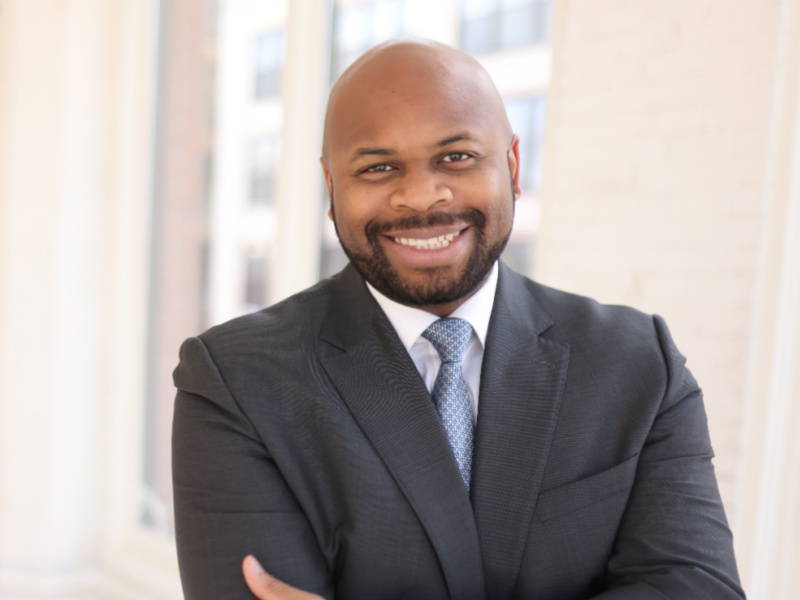Diana Marszalek 10 Jul 2023 // 9:24PM GMT

Bradley Akubuiro is a longtime champion of DEI, including equal access to higher education. As a Bully Pulpit Interactive partner, Akubuiro works with top-tier clients on DEI communications, and, as Boeing’s chief spokesperson, was a founding member of the aerospace giant’s racial equity task force before that. Earlier in his career, Akubuiro worked on college access as an advisor to Rev. Jesse Jackson, Sr. and for his alma mater, Northwestern University. Following the US Supreme Court’s ruling outlawing affirmative action in higher education, Akubuiro spoke with PRovoke Media about the big picture ramifications of the court’s decision, why companies should care about it and the importance of diversity in higher education. “My life was changed by the opportunity affirmative action gave me to attend Northwestern,” he said. An edited transcript:
What does the Supreme Court’s ruling say about the state of DEI in the US?
This ruling sets back decades of progress. It will be harmful to Black Americans and many others for generations to come, and those (who oppose affirmative action) want to use the momentum from this decision to come after companies next.
What are the ramifications of this ruling for business?
This ruling only addresses the university setting. But there are two reasons, if you are a company, you care about this. One is that the folks who are able to find spots at top universities (through affirmative action) make up the number one pool of diverse candidates after graduation — so organizations will have a harder time recruiting this already scarce talent. And that’s a direct challenge. A year ago, more than 80 companies signed amicus briefs saying that, in order to create the best outcomes, we need to have diversity among our staff and among the people we employ.
The second concern is that this will create a chilling effect. Effectively (the ruling) says race cannot be a consideration for universities when thinking about who will comprise the university environment. Corporate DEI initiatives have been very visible, and folks who are not comfortable seeing DEI in the corporate narrative could think, ‘This is our opportunity to get a similar win in the corporate construct.’ So it's not only about what the law does, but also about what the law symbolizes.
How are companies responding?
Companies aren’t sure what it means for them yet. Some have spoken out but there is a lot of analysis right now. There’s going to be a lot more scrutiny on corporate programs. Many companies made commitments in 2020 and 2021 addressing what they are going to do in terms of DEI. But folks who have taken on roles as chief diversity officers are leaving and not being replaced at alarming levels, particularly as the economy has shifted and as cultural wars are entering the workplace. The counsel that I am constantly giving is, companies have to figure out where they stand and stand there.
What do companies risk by waiting to see how this plays out before getting involved?
If you are thinking about the employees you just spent the last three years building trust with — telling them you have a place for them and that they are going to be included — and you suddenly go quiet, that silence sends a clear message to those employees. Companies are reticent to speak out now — and that goes beyond DEI. I’m not counseling people to shout from the mountain tops about this ruling, but you have to be thoughtful in how you talk about this. You have to have your action plans lined up with your stated values. If you go quiet when things get tough, employees ask themselves how sincere you really were when you said there was a place for them.
Are corporate DEI efforts and affirmative action in higher education comparable?
Corporate DEI is broad. In the most fundamental sense, it is about representation, respect and belonging. So once you get past the representation work, it also includes anti-racism training, equity checks to make sure people are paid fairly for the roles they’re in, and so many other things. I think it’s really important for leaders to reaffirm their commitment and why they care about DEI broadly. Now is a moment when people are watching to see whether you are going to stand by your commitments.
What’s the message you want corporate America to hear?
People who look like me have been held back from opportunities in this country for generations. Our boardrooms reflect that, and the communications industry reflects that. The fact that I was admitted to school during a period where my race could be considered as a factor created opportunities for me that I could never have imagined. Qualification is not linear. Having the highest GPA does not automatically mean someone is most likely to succeed or to contribute the most to an organization’s learning or working environment. We should want to make the world more equitable, but aside from that, we have a responsibility to create environments that encourage debate from people with different perspectives. The elevated discourse that comes from that will both inspire innovation and lead to better results. It’s about our people, but it’s also about American competitiveness. The motivations align.


































.jpg)


















